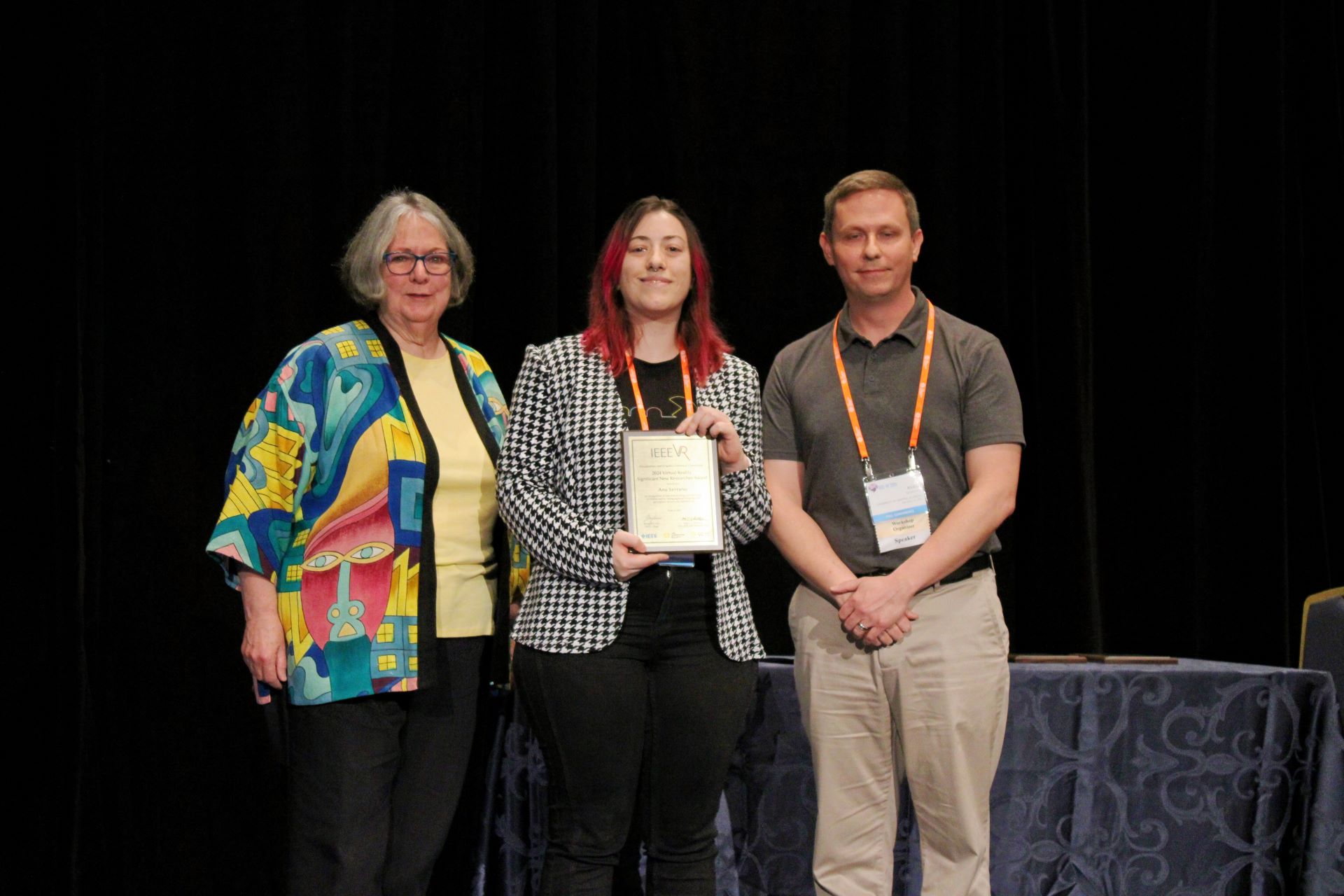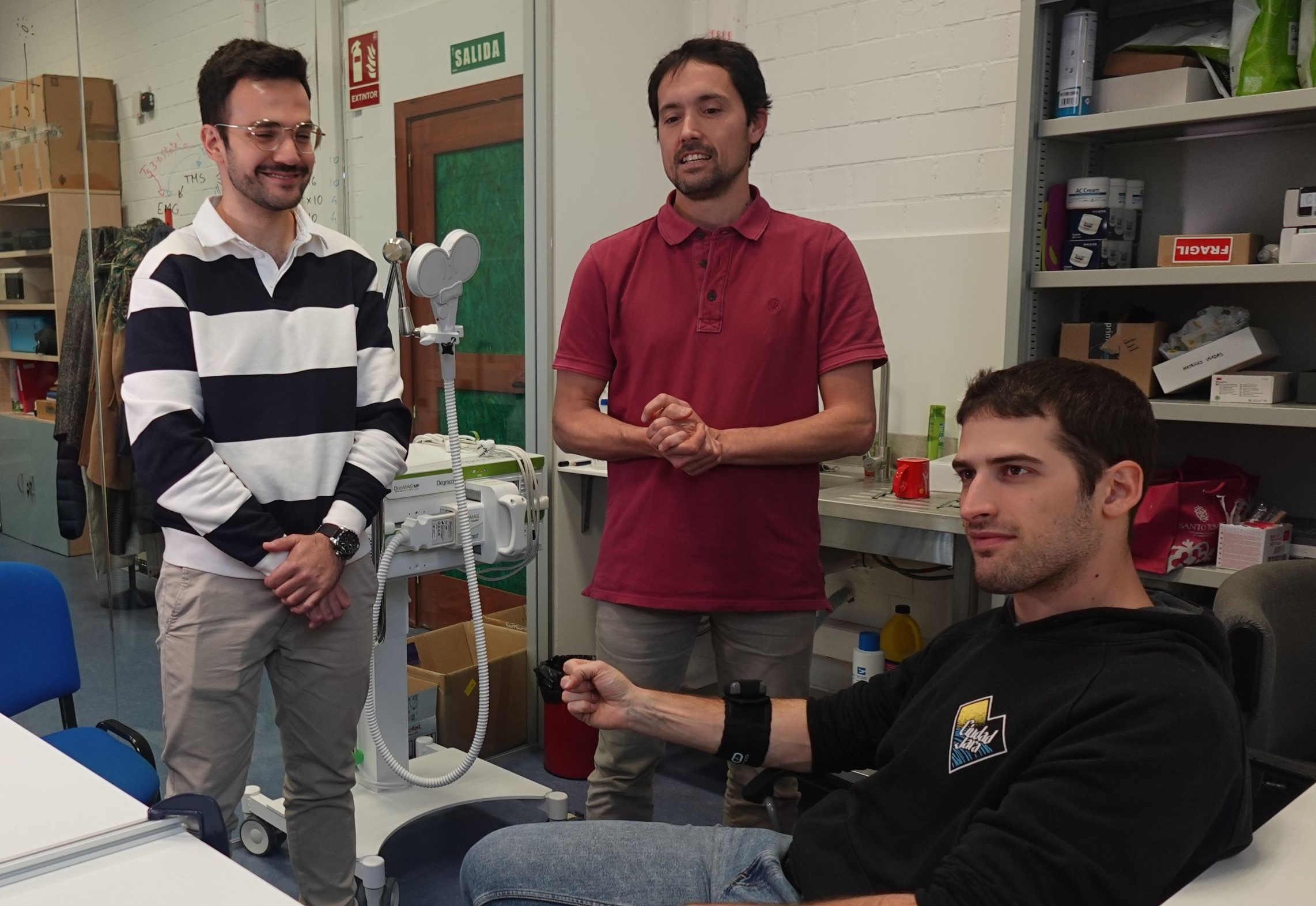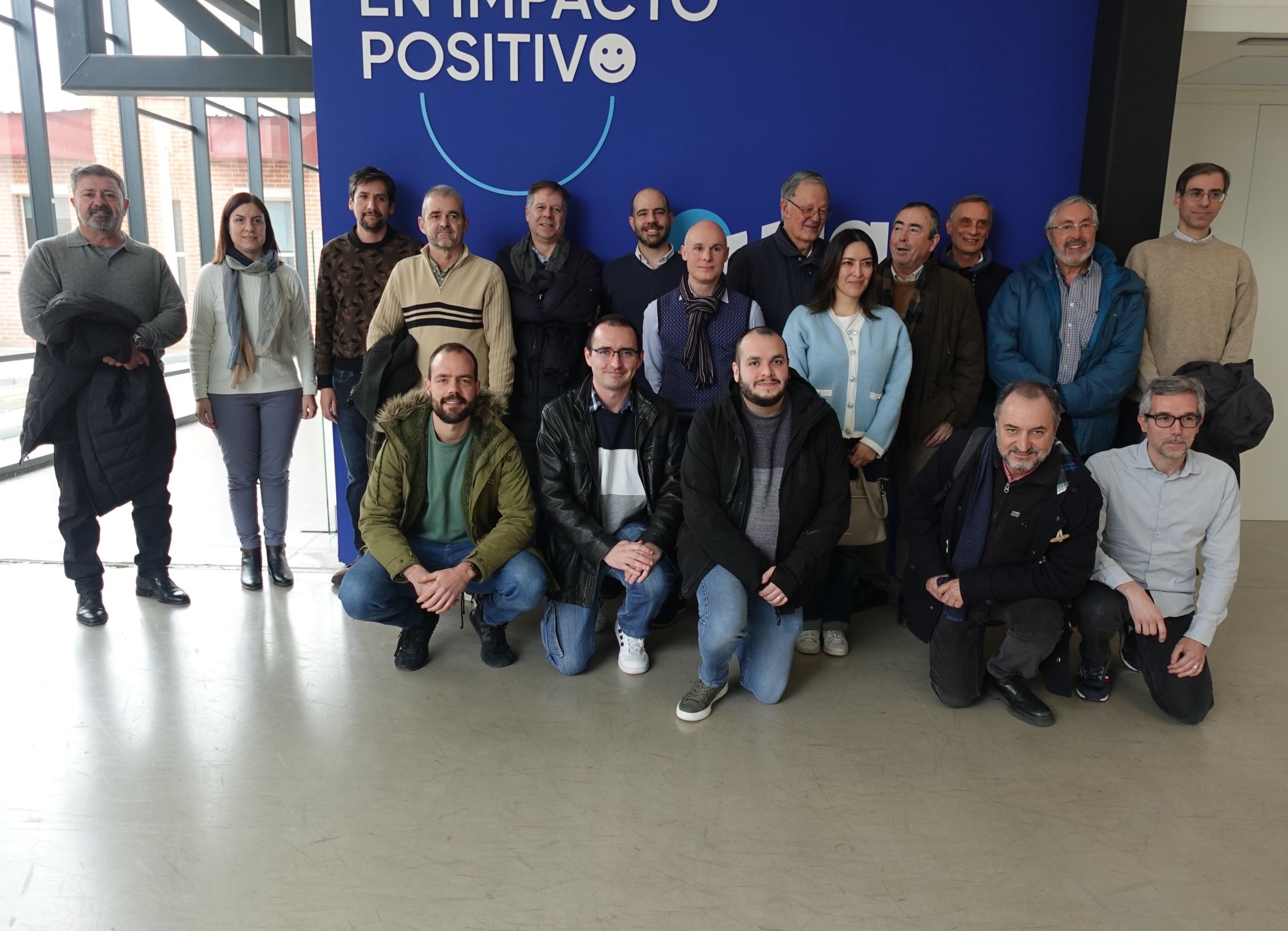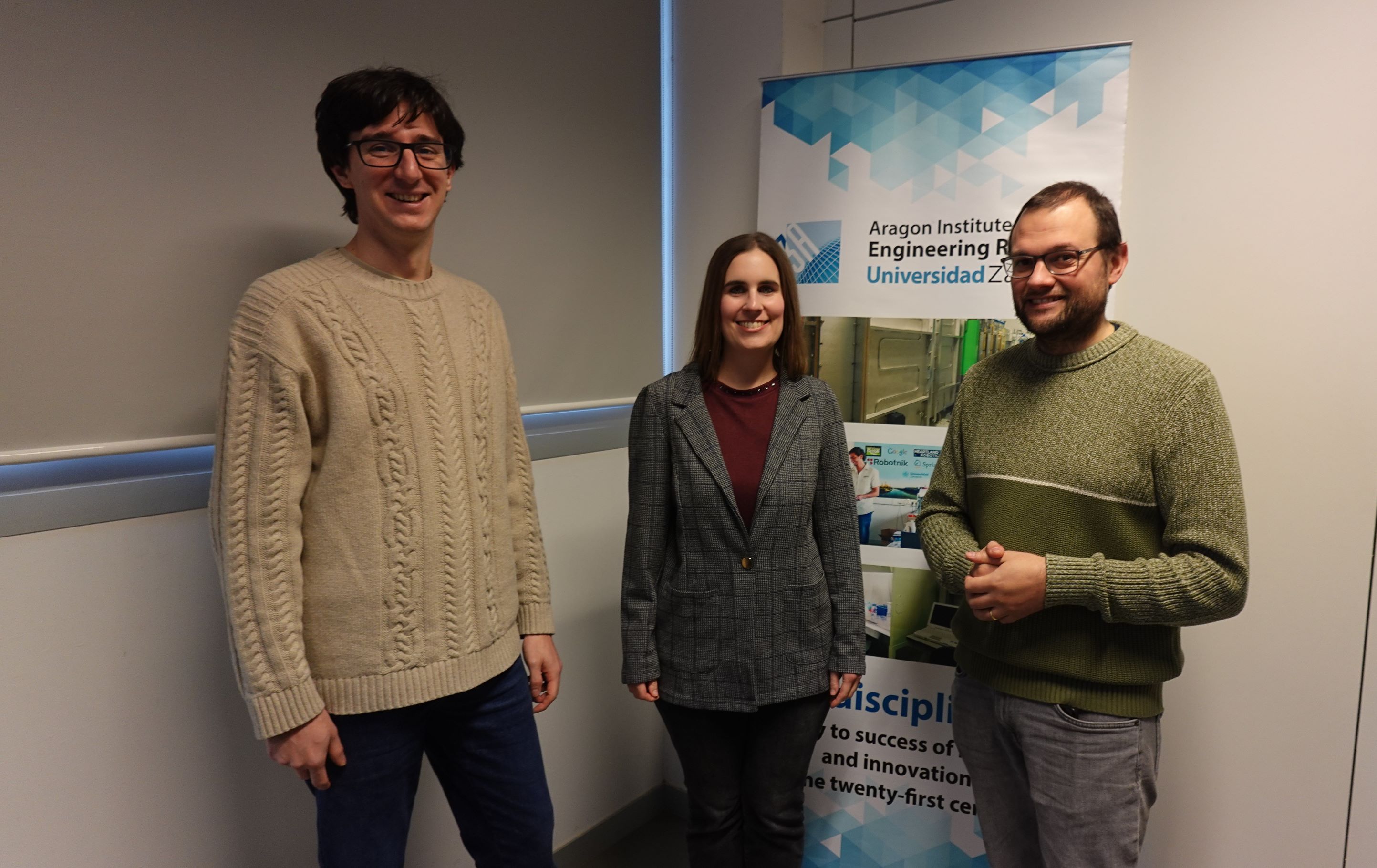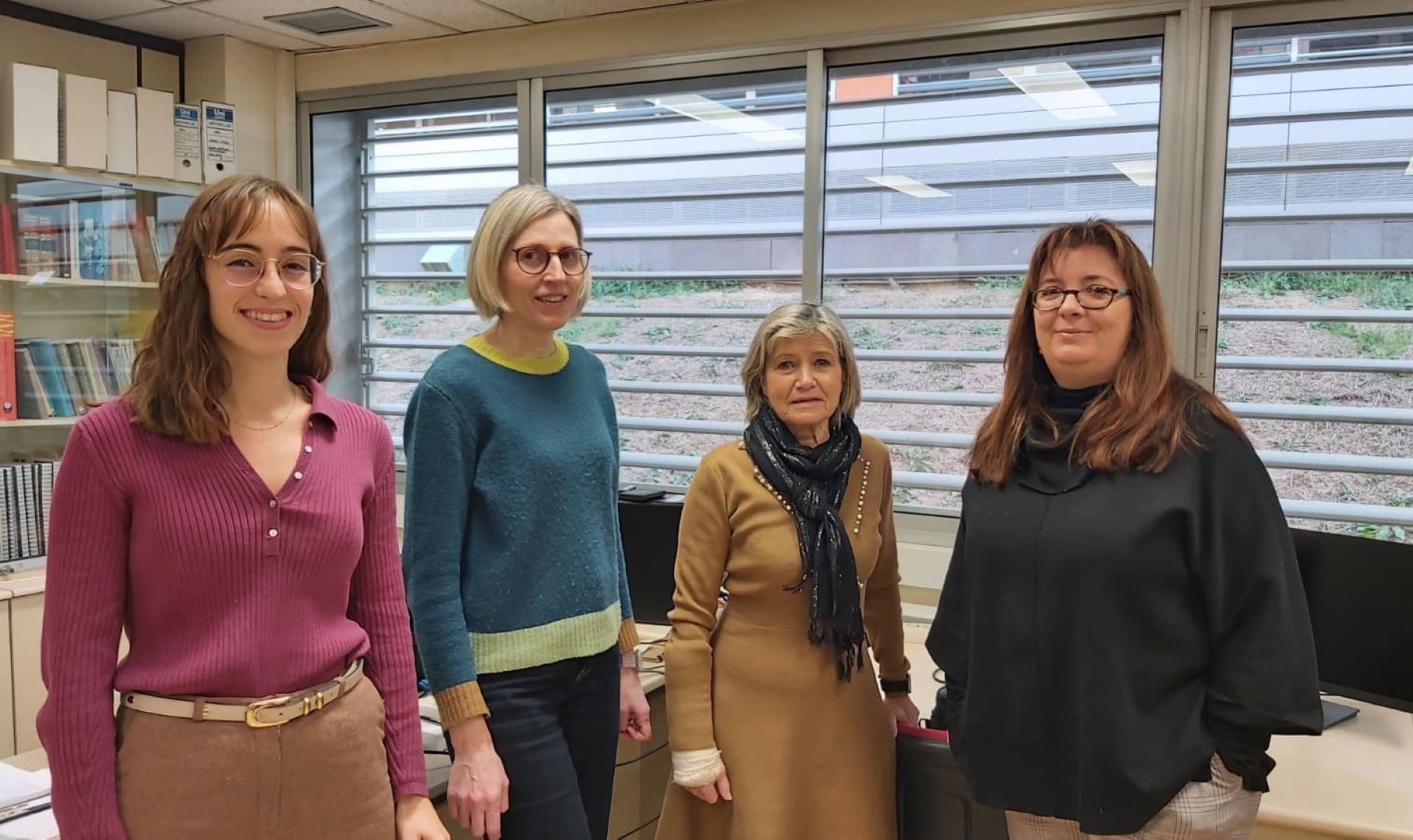
Ana Serrano, researcher and professor at the University of Zaragoza, has been awarded the VGTC Virtual Reality Significant New Researcher Award 2024 for her outstanding contributions in the fields of virtual reality, computational imaging and visual appearance perception. This award, presented by the IEEE (Institute of Electrical and Electronics Engineers), the world's largest technical professional organisation dedicated to the advancement of technology, recognises early-career, post-doctoral researchers who have made significant and relevant contributions to the field of virtual reality. Only one young researcher is recognised worldwide each year, making it extremely competitive.
Professor Serrano's research has deepened the understanding of users' attention and visual behaviour in virtual environments, developing computational models capable of modelling and predicting users' visual patterns in immersive environments. Her scientific work is highly relevant to the field of virtual reality, for its multiple applications in improving the interaction between a user and the machine and existing hardware, as well as designing more intuitive interfaces and creating more realistic and personalised experiences in VR.
This recognition is an international accolade for Ana Serrano's career and dedication in the field of virtual reality. "Receiving the IEEE VGTC Virtual Reality Significant New Researcher Award 2024 is an immense honour that highlights not only individual achievements, but also the collective effort of all the collaborators from all over the world," says the researcher. She especially highlights Stanford University and the Max Planck Institute for Informatics, as well as the team at the Graphics and Imaging Lab of the University of Zaragoza and the Aragon Institute for Engineering Research (I3A), where she carries out her research activity. "It is an incentive to continue innovating and contributing to the advancement of virtual reality technology".
His career has been plagued with awards and recognitions, the last of which was last year, when he was awarded the Eurographics Young Researcher Prize, awarded by the prestigious European Association for Computer Graphics.
The challenge of immersive environments
Currently, Professor Serrano is committed to further advancing the field of attention in immersive environments, a highly complex area due to the diversity of variables that influence this process. "Attention depends not only on visual factors, but also on other senses such as sound, the presence of moving objects or the nature of the task being performed. Understanding and modelling these attentional processes represents a considerable challenge," he says.
He highlights two key projects he is currently leading, IMMERSENSE, funded by the state research agency and led in collaboration with researcher Belén Masiá from the Graphics and Imaging Lab. The main objective of IMMERSENSE is to explore how virtual reality can offer new perspectives to understand and improve human care, specifically addressing the complex challenges involved in this process.
The second is an IMPULSO project, recently awarded by the Aragon Institute for Engineering Research (I3A) together with the BSiCOS biomedical signal processing group of the University of Zaragoza, which focuses on integrating physiological signal measurements to improve the understanding of attentional processes.
These projects address several of the complex challenges in this field, with the aim of improving both the technology and practical applications of virtual reality.
More information about the IEEE VGTC Virtual Reality Significant New Researcher: https://ieeevr.org/2024/awards/vgtc-awards/
